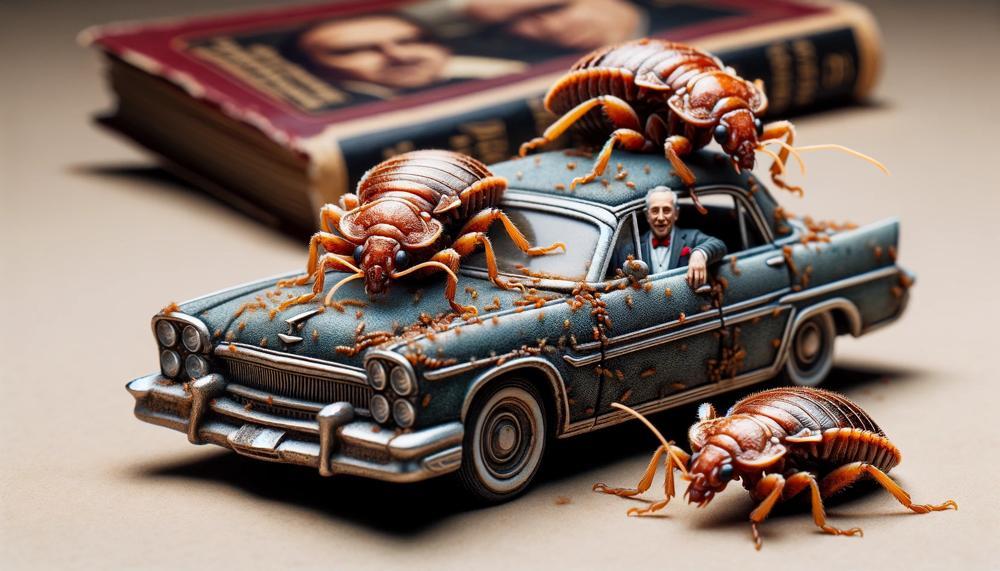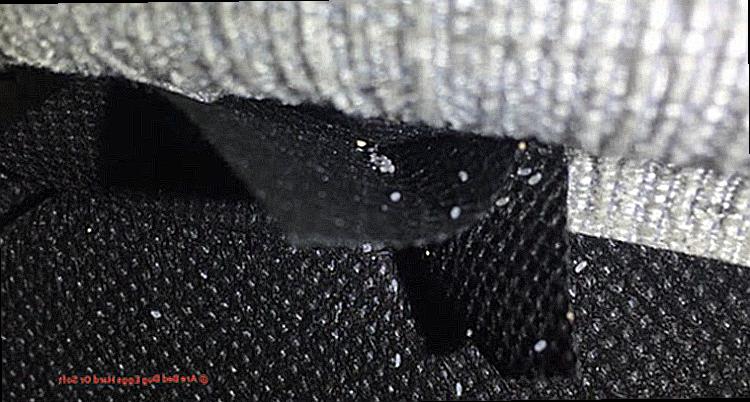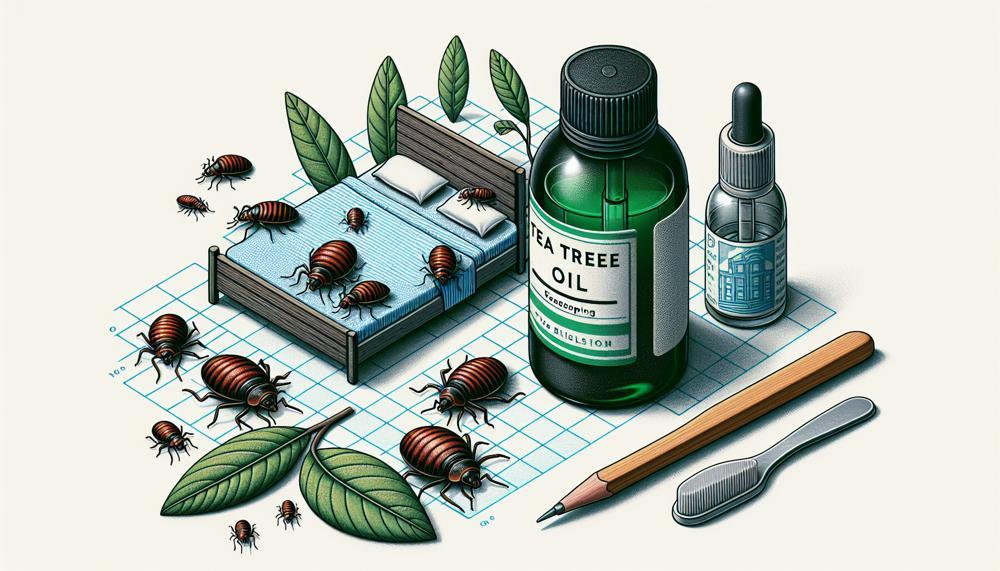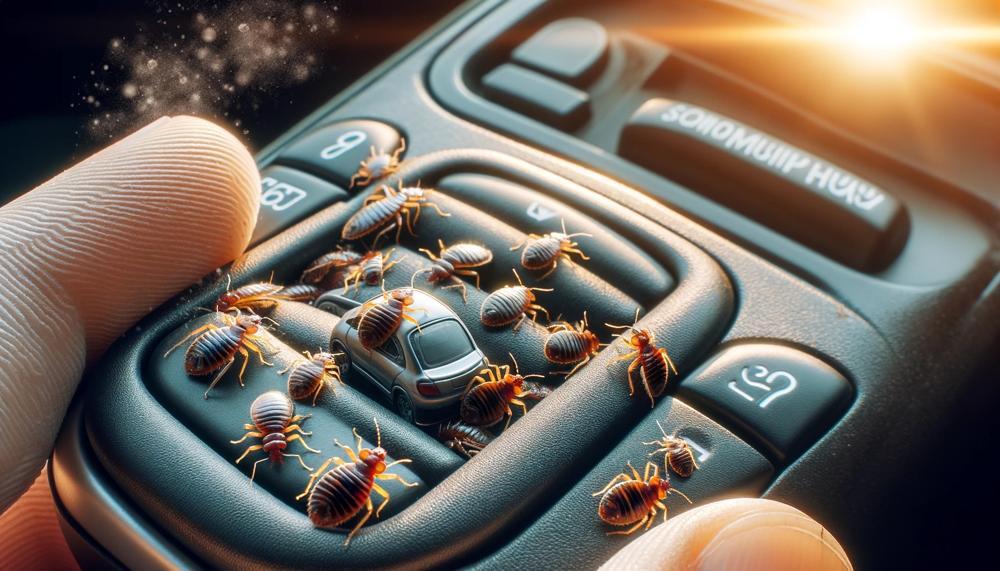Imagine embarking on a road trip only to discover that you’ve brought along unwelcome guests in your car. Bed bugs, those tiny, blood-sucking pests, can easily infest your vehicle, turning your journey into a nightmare.
In this blog post, we’ll delve into the possibility of bed bugs living in cars and provide you with crucial information to help you prevent and eliminate these pesky creatures.
Key Points:
Table of Contents
The Ideal Environment for Bed Bugs
| Factor | Description |
|---|---|
| Temperature | Bed bugs thrive in warm environments and are most active at temperatures between 25°C and 30°C. |
| Humidity | Bed bugs require a relative humidity of at least 40% to survive. |
| Food | Bed bugs feed on human blood and will typically feed every 5-7 days. |
| Harborage | Bed bugs need a place to hide during the day, such as in cracks and crevices in furniture, mattresses, and box springs. |
| Clutter | Clutter provides bed bugs with more places to hide and makes it more difficult to find and eliminate them. |
How Bed Bugs Can Get into Your Car
| Source | How Bed Bugs Can Get into Your Car |
|---|---|
| Public Transport | Bed bugs can hitch a ride on your clothes or luggage if you’ve been on a bus, train, or airplane that has bed bugs. |
| Second-hand Furniture | If you buy used furniture, especially upholstered furniture, it’s possible to bring bed bugs into your home and car. |
| Hotels and Motels | Bed bugs are often found in hotels and motels, so it’s important to inspect your room carefully before you unpack your belongings. |
| Pet | If your pet sleeps on your bed, it’s possible for them to pick up bed bugs from your home and transport them to your car. |
| Work | If you work in a place that has bed bugs, it’s possible for you to bring them home on your clothes or belongings. |
Signs of a Bed Bug Infestation in Your Car
| Location | Signs to Look For |
|---|---|
| Seats | Dark spots or stains on the seams or folds of the seats |
| Floor Mats | Cast skins, eggs, or live bed bugs underneath the floor mats |
| Dashboard and Steering Wheel | Dark spots or stains in the crevices or cracks |
| Cup Holders and Storage Compartments | Bed bug droppings or shed skin in these areas |
| Door Panels and Armrests | Small, dark spots or bloodstains |
| Trunk | Check for signs of bed bugs in the crevices of the trunk lining or around the spare tire |
The Dangers of Bed Bugs in Your Car
| Health Risk | Symptoms | Treatment |
|---|---|---|
| Allergic reactions | Itchy red bumps, swelling, difficulty breathing | Antihistamines, corticosteroids, epinephrine |
| Skin infections | Blisters, oozing sores, fever | Antibiotics, wound care |
| Sleep deprivation | Difficulty falling or staying asleep, fatigue, irritability | Good sleep hygiene, medication |
| Mental health problems | Anxiety, depression, insomnia | Therapy, medication |
Bed bugs can cause several health risks to individuals who have them in their car. These risks include:
- Allergic reactions: Bed bug bites can cause allergic reactions in some people. Symptoms of an allergic reaction can include itchy red bumps, swelling, and difficulty breathing. In severe cases, an allergic reaction to bed bug bites can be life-threatening.
- Skin infections: Bed bug bites can also become infected, leading to blisters, oozing sores, and fever. Skin infections from bed bug bites can be treated with antibiotics and wound care.
- Sleep deprivation: Bed bugs can cause sleep deprivation by waking people up at night to feed. Sleep deprivation can lead to fatigue, irritability, and difficulty concentrating.
- Mental health problems: Bed bugs can also cause mental health problems, such as anxiety, depression, and insomnia. These mental health problems can be caused by the stress and discomfort of having bed bugs in one’s car.
Tips for Preventing Bed Bugs from Infesting Your Car
| Tip | Description |
|---|---|
| Inspect Before You Enter | Before entering your car, inspect the seats, floor, and other surfaces for signs of bed bugs, such as small, dark spots or shed skins. If you see any signs of bed bugs, do not enter the car and contact a pest control professional. |
| Keep Your Car Clean | Bed bugs are attracted to dirt and debris, so keeping your car clean can help to prevent them from entering. Vacuum your car regularly, and be sure to clean the seats, floor, and other surfaces with a disinfectant. |
| Avoid Parking in Infested Areas | If you know that there is a bed bug infestation in your area, avoid parking your car in that area. Bed bugs can easily travel from one car to another, so parking in an infested area can increase your risk of bringing bed bugs into your car. |
| Use a Car Cover | Using a car cover can help to prevent bed bugs from entering your car through the windows or doors. Be sure to choose a car cover that is made of a tight-fitting material, such as canvas or vinyl. |
| Inspect Luggage and Belongings | Before bringing luggage or other belongings into your car, inspect them for signs of bed bugs. If you see any signs of bed bugs, do not bring the items into your car and contact a pest control professional. |
| Be Cautious of Public Transportation | If you use public transportation, be cautious of bed bugs. Bed bugs can easily travel from one person to another, so it is important to avoid sitting next to someone who may be infested with bed bugs. |
How to Get Rid of Bed Bugs in Your Car
| Prevention Method | Details |
|---|---|
| Vacuum Regularly | Vacuum your house thoroughly, including cracks and crevices, at least once a week to remove any bed bug eggs or nymphs that may have been left behind. |
| Wash Bedding and Clothes in Hot Water | Wash all bedding, clothes, and curtains in hot water (at least 55 degrees Celsius) and dry them on high heat to kill any bed bugs that may be present. |
| Inspect Furniture and Mattresses | Inspect your furniture and mattresses regularly for signs of bed bugs, such as dark spots, blood stains, or eggs. If you find any signs of bed bugs, treat the affected items immediately. |
| Seal Cracks and Crevices | Seal any cracks or crevices in your walls, baseboards, and furniture to prevent bed bugs from hiding. |
| Use Bed Bug Traps | Place bed bug traps in areas where bed bugs are likely to be found, such as under your bed or near your furniture. These traps can help you catch and kill any bed bugs that may be present. |
| Keep Your Home Clean | Keep your home clean and clutter-free to make it less attractive to bed bugs. |
| Avoid Bringing Infested Items into Your Home | Be careful not to bring infested items, such as used furniture or clothing, into your home. |
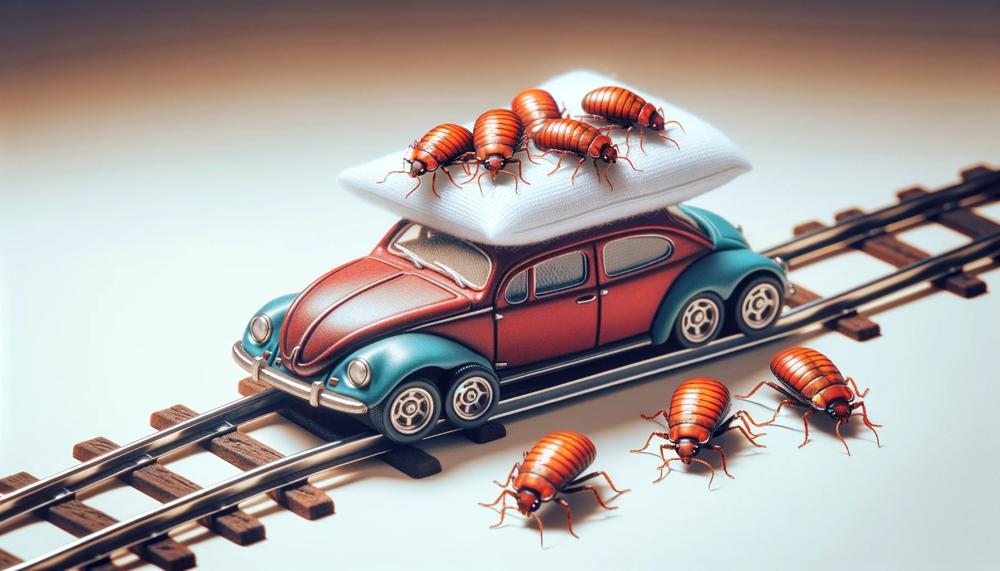
Conclusion
In the realm of car ownership, bed bugs lurk as unwanted hitchhikers, capable of transforming a peaceful journey into a nightmare.
These resilient pests thrive in the warm, dark, and upholstered spaces of vehicles, posing a significant risk to travelers and car owners alike.
Understanding the signs of their presence, such as dark spots or bloodstains, is crucial for early detection and prevention. Regular cleaning and vacuuming can help reduce the risk of infestation, while proactive measures like using a car cover and inspecting luggage can further minimize the chances of bringing these unwanted guests into your vehicle.
Remember, prevention is key in the battle against bed bugs, ensuring a peaceful and pest-free journey on the open road.

